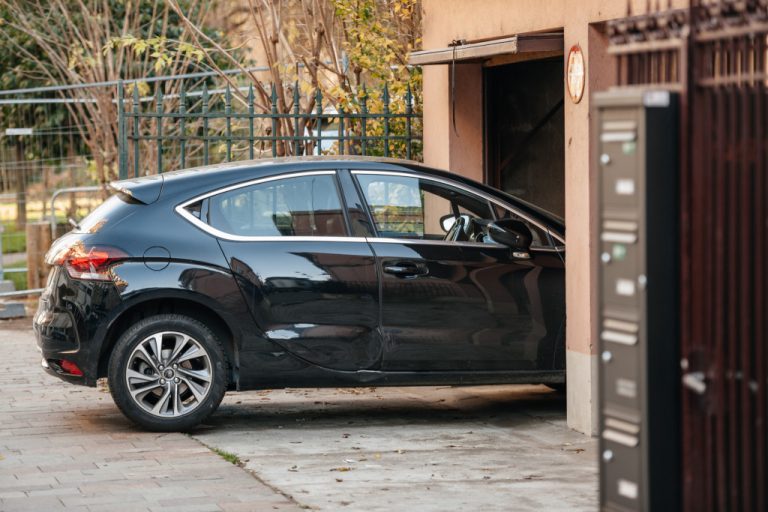- Garage construction requires careful planning and consideration of size, shape, and door types.
- Foundation requirements and proper ventilation systems are essential for safety and longevity.
- Electrical and plumbing aspects must be considered to ensure functionality and safety.
- Roofing materials must be selected based on budget, durability, and overall aesthetic.
- Proper installation and attention to detail are necessary for a safe and secure garage.
Constructing a garage in your home can be an exciting project, providing you with much-needed storage space and adding value to your property. However, various factors need to be considered when constructing a garage. Planning out the entire process carefully before beginning any work is essential so that you have a safe and functional garage that meets all your needs.
Garage Specifications
Considering the garage specifications is the first step in garage construction. Here are some essential factors to consider:
Size and Shape of the Garage
When constructing a garage in your home, it’s essential to consider the size and shape of the space. An appropriately sized garage can provide ample storage, workspace, and even room for multiple vehicles. On the other hand, a garage that is too small can make it challenging to maneuver cars or provide enough space for storage or hobbies.
Additionally, the shape of the garage can significantly impact its functionality. For instance, a long, narrow garage may not be ideal for parking larger vehicles or trailers. Considering these factors beforehand can help ensure that your garage is built to serve your specific needs rather than being a source of frustration or inconvenience.
Door Types

When constructing a garage in your home, it is crucial to consider the type of door you will install. The door type you choose can significantly impact the functionality and aesthetic of your garage. Different door types, such as roll-up, sectional, and tilt-up, offer varying advantages and disadvantages, such as ease of installation, durability, and security. It’s vital to assess your needs and budget carefully before deciding.
Additionally, garage door installation is a delicate and precise process that requires the attention of a skilled professional. Proper installation ensures that your garage door functions correctly and safely for years. Don’t underestimate the importance of door types in garage construction – they can make a huge difference in the long run.
Foundation Requirements
When constructing a garage in your home, it is vital to properly consider foundation requirements. This refers to the specific foundation type necessary for your garage to be structurally sound and safe. A foundation that is too shallow or not properly supported can lead to significant issues down the line, such as cracks in the walls or floors or even collapse.
By taking the time to research and implement the appropriate foundation requirements, homeowners can ensure their garage will stand the test of time and provide a secure space for vehicles and storage. It is vital to consult with a professional who has experience in garage construction to properly consider foundation requirements and ensure the safety of the entire structure.
Roofing Materials
When constructing a garage in your home, it is essential to consider roofing materials carefully. The suitable roofing material can protect your garage from the elements and withstand wear and tear. Different materials offer different benefits, so it is essential to consider things like budget, durability, and overall aesthetic when selecting a roofing material.
Whether you are looking for something cost-effective, low-maintenance, or simply visually appealing, a roofing material can meet your needs. By choosing wisely, you can ensure that your garage is built to last and stands up to the test of time.
Ventilation Systems
Proper ventilation systems are essential when constructing a garage within your home. Ventilation systems help maintain the air quality in your garage, keeping it free from harmful gases and fumes that could threaten your health.
When considering the right ventilation system for your garage, it is crucial to pay close attention to the size of the garage and the number of vehicles it will accommodate. With the wrong size and type of ventilation system, the garage may be susceptible to mold and mildew, which can cause damage to your vehicles and affect their overall performance.
Additionally, a well-constructed ventilation system will prevent the accumulation of moisture, helping to keep your garage dry and free from rust. Overall, it is important to consider ventilation systems when constructing a garage to ensure the safety and longevity of your vehicles.
Electrical and Plumbing Considerations

When constructing a garage in your home, it is important to consider the electrical and plumbing aspects of the project to ensure its functionality and safety. Electrical considerations involve determining the number and type of outlets needed, as well as lighting options and the possibility of adding an electric vehicle charging station.
Plumbing considerations involve deciding whether or not to add a sink or toilet and ensuring proper drainage and ventilation for any potential water damage. By taking the time to consider these factors properly, homeowners can avoid potential issues down the road and create a useful and safe garage for their needs.
These are important factors to consider when constructing a garage in your home. You can achieve a safe and functional garage for years by planning carefully and paying attention to details.













